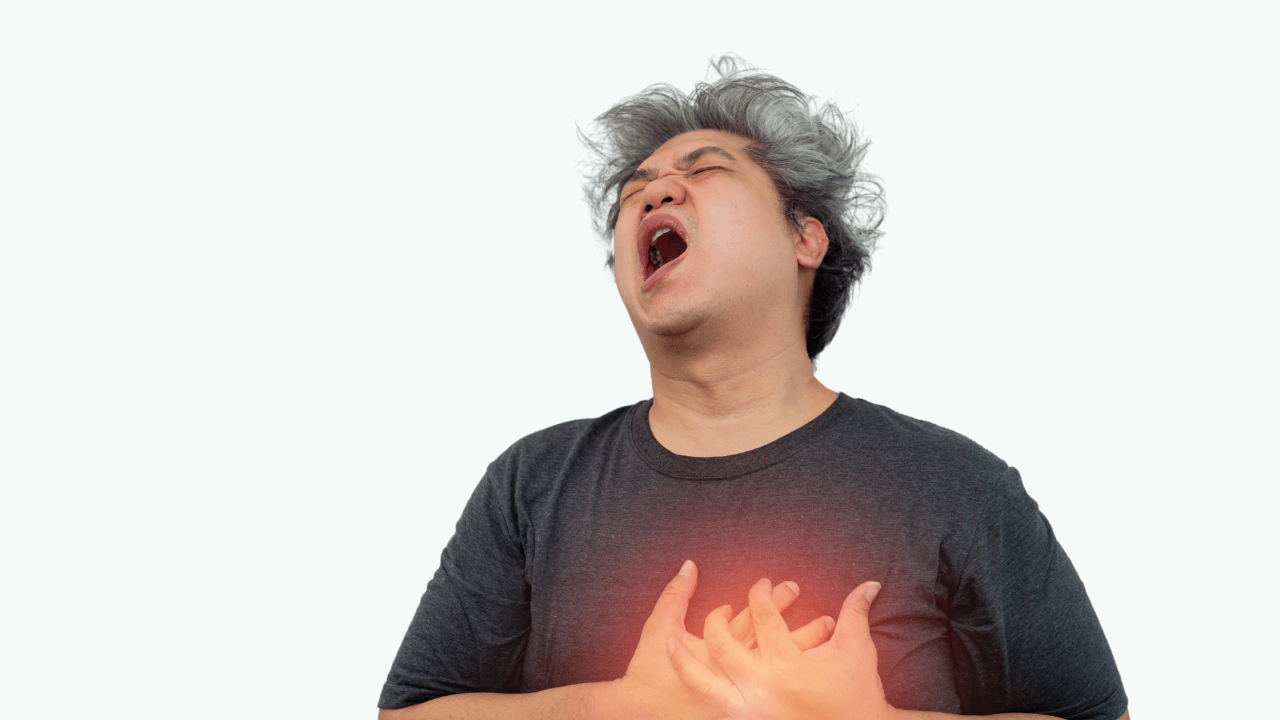

During bouts of anxiety or extreme stress, you might experience physiological changes like rapid breathing, increased heart rate, or irregular heartbeat. These physical manifestations may present in response to stress or as a symptom of specific anxiety disorders.
Heart palpitations may be triggered during anxiety-provoking situations, particularly during stressful situations. These situations might include heart palpitations before a job interview, during a flight, or when delivering a speech.
Symptoms of heart palpitations include irregular heartbeat patterns, fluttering sensations, and a feeling of a rapid, pounding heart. Most anxiety-induced heart palpitations are not typically dangerous and tend to subside once the triggering situation passes.
In this article, I will explain the association between anxiety and heart palpitations, including its causes, signs, and health implications. I will also discuss treatment for heart palpitations and tips to minimize anxiety-induced heart palpitations.
Anxiety-provoking situations may cause increased heart palpitations, often accompanying sensations of pounding, fluttering, racing, or skipped heartbeats. Heart palpitations happen as a physiological response to heightened stress or anxiety levels.
Episodes of anxiety trigger the body’s “fight or flight” response by activating your body’s autonomic nervous system. Such a mechanism may increase your heart rate and cause you to feel heart palpitations in the chest, neck, or throat.
Heart palpitations could seem alarming but are usually not dangerous and tend to subside once the triggering situation passes. Besides heart palpitations, anxiety could manifest in other physical symptoms such as fatigue, rapid breathing, and sweating.
It is crucial to differentiate anxiety-related palpitations from those caused by health conditions like arrhythmias or myocarditis, which may require medical attention.
 Signs Of Heart Palpitations From Anxiety
Signs Of Heart Palpitations From AnxietyHeart palpitations present as various sensations, including fluttering, irregular heartbeat, and pounding, often associated with heightened awareness of your heart rhythm.
Anxiety-induced heart palpitations may cause you to experience a fluttery or flapping feeling in your chest. You might also become aware of your heart rate rising and slowing down, even inducing a feeling like your heart skips a beat or pauses for a second or two.
These symptoms of heart palpitations could be distressing. They may be linked to anxiety, triggering the body’s fight or flight response.
Here is a table highlighting the chief symptoms of heart palpitations and anxiety:
| Symptoms of Heart Palpitations | Associated with Anxiety |
|---|---|
| Fluttering | Yes |
| Irregular heartbeat | Yes |
| Pounding | Yes |
| Awareness of heart rhythm | Yes |
| Shortness of breath | Yes |
Activation of the body’s autonomic nervous system in response to anxiety might raise the heartbeat and induce heart palpitations. The following factors contribute to why anxiety causes heart palpitations:
Understanding these mechanisms can help you recognize the connection between anxiety and heart palpitations, leading to better management and prevention strategies.
Your doctor may conduct a thorough assessment, including listening to your heart for abnormalities and performing relevant blood tests to rule out underlying health conditions.
The doctor may also inquire about your:
Your doctor may suggest a blood test (complete blood count or CBC) to check for anemia or low potassium. They might also investigate the possibility of a thyroid problem or other health issues causing heart palpitations.
A holistic approach to treating anxiety-induced heart palpitations involves combining medications, complementary health treatments, and psychotherapy tailored to individual needs.
The following table highlights some treatment approaches to manage heart palpitations:
| Treatment Type | Description |
|---|---|
| Complementary Treatments | Techniques like biofeedback and massage therapy could help promote relaxation, reduce stress levels, and help manage anxiety-induced palpitations. These techniques could help control your heart rate and breathing, minimizing heart palpitations. |
| Medications | A doctor could prescribe anti-anxiety medications and antidepressants to manage heart palpitations during anxiety. These medications may include beta blockers like propranolol and benzodiazepines, such as alprazolam and diazepam. |
| Psychotherapy | Undergoing cognitive behavioral therapy could identify and improve your thought patterns to alleviate anxiety and associated heart palpitations. Exposure-response prevention therapy aims to generate a positive response to your fears to mitigate your anxiety triggers. |
Heart palpitations arising from anxiety typically exhibit a short-term nature, often subsiding promptly after onset. These palpitations usually last a few minutes, starting suddenly and ending quickly.
In cases of recurring heart palpitations due to anxiety, a doctor may consider diagnosing an anxiety disorder, which might significantly impact daily activities.
To provide a clearer understanding, let’s compare heart palpitations caused by anxiety versus other potential causes:
| Heart Palpitations from Anxiety | Other Potential Causes |
|---|---|
| Typically short-lived | Can be persistent |
| Promptly subside after onset | May last longer |
| Often triggered by stress | Varied triggers |
| Generally not harmful | Could indicate health issues |
| Common in anxiety disorders | Various underlying conditions |
According to the NHS, you may not require medical counsel if you experience occasional or mild cases of heart palpitations. In most cases, heart palpitations triggered by anxiety are not life-threatening and typically subside once the triggering situation has passed.
However, in rare instances, heart palpitations could indicate a severe health problem like arrhythmia (abnormal heart rhythm). It is crucial to differentiate between benign anxiety-induced palpitations and those that may indicate an underlying cardiac condition.
If you experience heart palpitations along with symptoms like chest pain, difficulty breathing, dizziness, or confusion, seek immediate medical attention. These signs might indicate a more severe underlying issue that requires prompt evaluation and treatment.
You may implement stress-management techniques to reduce the severity of anxiety-induced heart palpitations. These anxiety reduction techniques may include:
Anxiety is a common cause behind increased heart rate and heart palpitations, which may heighten during stressful scenarios or events. You could reduce occasional heart palpitations and anxiety through relaxation practices like meditation, yoga, or deep breathing.
However, in rare cases, heart palpitations might indicate underlying health conditions like arrhythmias, myocarditis, or thyroid issues. These cases require immediate medical attention and proper diagnosis through various tests and examinations.
Splashing cold water on your face, engaging in regular exercise, increasing water intake, and breathing deeply may help calm anxiety-provoked heart palpitations.
Tyler Read earned an undergraduate academic degree from Sonoma State University, California and is a certified personal trainer (CPT) with NASM (National Academy of Sports Medicine). With over 16 years of experience, Tyler has trained clients both online and in-person.
He is passionate about helping others turn their love for fitness into a career. Tyler has worked with many local and commercial gyms before establishing his successful private personal training business, which he continues to operate.
